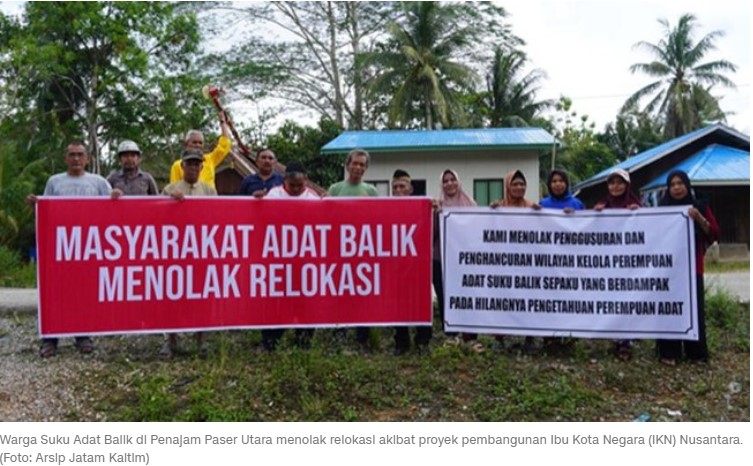
STRATEGIC ASSESSMENT. Indonesia plans to raise its budget by up to 13.6% next year as President Joko Widodo orders his cabinet to speed up the completion of strategic projects, including the construction of a new capital city, the finance minister said.
The Southeast Asian nation will spend up to 3,476.2 trillion rupiah ($232.69 billion) next year, with government revenue seen at up to 2,865.3 trillion rupiah, Sri Mulyani Indrawati told a meeting with government officials.
President Jokowi said he has plans to gather investors who have expressed an interest in investing in the new capital Nusantara in East Kalimantan after the Eid. President Jokowi has ordered that a detailed map of the city be prepared for interested investors, Public Works and Housing Minister Basuki Hadimuljono said.
The minister informed that his ministry has gathered details on land use at IKN for residential houses, vertical housing, urban forests, green belts, commercial, sports, government offices, education, worship, health facilities, and parks. With these details, potential investors can map the location of the facilities or housing they are interested in building, he added.
Construction is pushing ahead on a series of Chinese-backed dams that are set to form Southeast Asia’s largest hydroelectric project, and which will power Indonesia’s new capital city, Nusantara.
But the planned city and accompanying infrastructure have not been free of controversy. In a statement in October 2022, Jokowi claimed that 80 per cent of Nusantara’s energy will come from renewable sources – including solar, wind, and hydropower from the Kayan Cascade.
Amid this ambitious target, civil society groups and local communities are still seeking clarity and assurances over the environmental impacts and displacements that the Kayan project could cause.
Home to nearly 700,000 people, the industrial port city of Balikpapan is a gateway to the new capital, and is particularly important for bringing in the labor and supplies needed to build it. Starting at the port in Balikpapan, the road runs to the bridge that crosses the bay via the mangrove-rich Balang Island, eliminating the need for a long drive along the shoreline.
The project, led by state-controlled construction company PT Wijaya Karya and dubbed the IKN toll road, will run 13 km (8 mi), fringing the southwest and northwest of the 10,025-hectare (24,772-acre) Sungai Wain protected forest.
The completion of the new road threatens to sever the forest connection between the terrestrial and marine ecosystems of Sungai Wain and Balikpapan Bay, says Agusdin, a manager at the nonprofit Pro Natura Foundation, which has been tasked by the provincial government of East Kalimantan with managing conservation efforts for the Sungai Wain protected forest.





